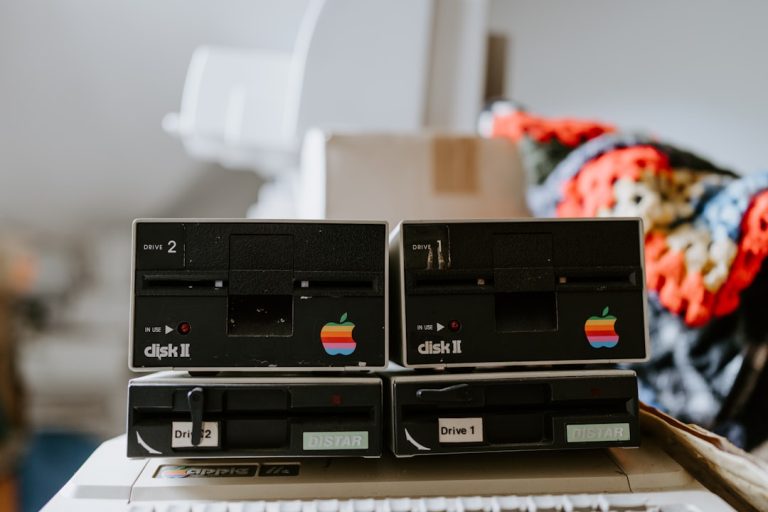
The advent of the internet has transformed the landscape of communication, and at the forefront of this transformation is blogging. Initially emerging in the late 1990s as a platform for personal expression, blogging has evolved into a significant medium for information dissemination and public discourse. The rise of blogging can be attributed to several factors, including the democratization of content creation, the accessibility of technology, and the growing demand for authentic voices in a sea of corporate media.
As individuals began to harness the power of the internet, they found that blogging offered a unique opportunity to share their thoughts, experiences, and expertise with a global audience. As blogging gained traction, it became increasingly integrated into online publications. Traditional media outlets began to recognize the potential of blogs to engage readers and provide fresh perspectives on current events.
This shift was not merely a trend; it marked a fundamental change in how information is produced and consumed. Blogs began to feature prominently on news websites, often serving as platforms for opinion pieces, analysis, and commentary. The rise of social media further fueled this trend, allowing bloggers to reach wider audiences and interact with readers in real-time.
Consequently, blogging has become an essential component of online publications, shaping the way news and information are presented.
Key Takeaways
- Blogging has become a prominent feature in online publications, allowing individuals to share their thoughts and expertise with a wide audience.
- The rise of blogging has revolutionized the way articles are published, providing a platform for diverse voices and perspectives to be heard.
- Blogging has significantly influenced traditional media outlets, forcing them to adapt to the changing landscape of online publishing.
- Blogging plays a crucial role in shaping public opinion and discourse, as it allows for the dissemination of alternative viewpoints and information.
- The power of blogging lies in its ability to amplify diverse voices and perspectives, providing a platform for marginalized communities to share their experiences and insights.
- Leveraging blogging can help individuals establish thought leadership and personal branding, allowing them to showcase their expertise and build a loyal following.
- The future of blogging in online publications and articles is promising, as it continues to evolve and adapt to the changing needs of online readers.
- Tips for creating compelling and impactful blog posts include focusing on engaging content, utilizing multimedia elements, and promoting active reader engagement.
How Blogging has Revolutionized the Way Articles are Published
Blogging has fundamentally altered the traditional publishing model by enabling anyone with an internet connection to become a content creator. This shift has led to a more diverse range of voices and perspectives in the media landscape. Unlike conventional journalism, which often adheres to strict editorial guidelines and gatekeeping practices, blogging allows for a more informal and personal approach to writing.
Bloggers can express their opinions freely, often without the constraints imposed by traditional media outlets. This freedom has resulted in a proliferation of niche blogs that cater to specific interests, from travel and food to politics and technology. Moreover, the immediacy of blogging has changed the pace at which articles are published.
In traditional media, articles often undergo extensive editing and fact-checking processes before they reach the public. In contrast, bloggers can publish their thoughts and insights almost instantaneously, allowing them to respond to current events in real-time. This immediacy has created a sense of urgency in online discourse, where timely commentary can garner significant attention and engagement.
As a result, blogging has not only democratized content creation but also accelerated the flow of information, making it possible for readers to access diverse viewpoints on pressing issues as they unfold.
The Influence of Blogging on Traditional Media Outlets

The rise of blogging has had a profound impact on traditional media outlets, compelling them to adapt to a rapidly changing landscape. As bloggers gained credibility and influence, mainstream media began to take notice. Many traditional journalists have embraced blogging as a complementary tool for their work, using it to share insights that may not fit within the confines of a standard news article.
This integration has blurred the lines between professional journalism and citizen reporting, leading to a more collaborative approach to news coverage. Furthermore, traditional media outlets have recognized the importance of engaging with their audiences through blogs and social media platforms. Many newspapers and magazines now feature blogs written by their staff or guest contributors, allowing them to tap into the expertise of various voices while fostering community engagement.
This shift has also prompted traditional media to rethink their editorial strategies, focusing on creating content that resonates with readers on a personal level rather than solely adhering to conventional reporting standards. As a result, blogging has not only influenced the content produced by traditional media but has also reshaped their approach to audience interaction and engagement.
The Role of Blogging in Shaping Public Opinion and Discourse
| Metrics | Data |
|---|---|
| Number of active blogs | Over 500 million |
| Percentage of internet users who read blogs | Around 77% |
| Percentage of bloggers who express their opinions on social and political issues | Approximately 60% |
| Impact of blogs on shaping public opinion | Significant, with many blogs influencing public discourse and policy decisions |
| Role of blogs in providing diverse perspectives | Crucial, as blogs offer alternative viewpoints and amplify marginalized voices |
Blogging plays a crucial role in shaping public opinion by providing a platform for diverse perspectives and fostering dialogue around important issues. In an era where misinformation can spread rapidly through social media channels, blogs often serve as reliable sources of information that challenge dominant narratives. Bloggers frequently engage with their audiences by encouraging comments and discussions, creating spaces for dialogue that may not be present in traditional media formats.
This interactive nature of blogging allows for a more nuanced exploration of complex topics, enabling readers to consider multiple viewpoints before forming their opinions. Moreover, blogs have become instrumental in mobilizing social movements and advocating for change. Activists and thought leaders utilize blogging as a means to raise awareness about critical issues such as climate change, social justice, and human rights.
By sharing personal stories and insights through their blogs, these individuals can connect with readers on an emotional level, inspiring them to take action or engage in advocacy efforts. The viral nature of online content further amplifies these messages, allowing them to reach broader audiences and influence public discourse on a global scale.
The Power of Blogging in Amplifying Diverse Voices and Perspectives
One of the most significant contributions of blogging is its ability to amplify diverse voices that may be marginalized or overlooked by mainstream media. Historically, traditional media has often favored certain narratives while sidelining others based on factors such as race, gender, socioeconomic status, or geographic location. Blogging disrupts this status quo by providing a platform for individuals from various backgrounds to share their experiences and insights.
This democratization of voice is particularly important in today’s interconnected world, where understanding different perspectives is essential for fostering empathy and social cohesion. Blogs focused on specific communities or issues have emerged as vital resources for underrepresented groups. For instance, LGBTQ+ bloggers have created spaces where they can share their stories and advocate for rights while challenging stereotypes perpetuated by mainstream narratives.
Similarly, blogs centered around racial justice or disability rights provide platforms for individuals to discuss their lived experiences and advocate for systemic change. By elevating these voices, blogging contributes to a richer tapestry of public discourse that reflects the complexities of society.
Leveraging Blogging for Thought Leadership and Personal Branding

Building Credibility and Authority
As readers come to recognize a blogger’s expertise, they are more likely to seek out their opinions on relevant topics or engage with their work in other capacities. Personal branding through blogging also extends beyond establishing authority; it involves creating an authentic connection with an audience. Successful bloggers often share personal anecdotes or insights that resonate with readers on an emotional level.
As individuals cultivate their personal brands through blogging, they may find opportunities for collaboration, speaking engagements, or even book deals that further enhance their visibility and influence within their industry.
Enhancing Visibility and Influence
The Future of Blogging in Online Publications and Articles
As technology continues to evolve, so too will the landscape of blogging within online publications. The rise of multimedia content—such as podcasts, videos, and interactive graphics—has already begun to reshape how bloggers present their ideas.
Additionally, advancements in artificial intelligence may lead to new tools that assist bloggers in content creation or audience engagement, further enhancing the blogging experience. Moreover, as concerns about misinformation grow, there will likely be an increased emphasis on credibility and fact-checking within the blogging community. Readers are becoming more discerning about the sources they trust; thus, bloggers who prioritize accuracy and transparency will stand out in an increasingly crowded space.
This focus on integrity will not only benefit individual bloggers but will also contribute positively to the overall quality of online discourse.
Tips for Creating Compelling and Impactful Blog Posts
Creating compelling blog posts requires a combination of creativity, strategy, and authenticity. One effective approach is to start with a strong hook that captures readers’ attention from the outset. This could be an intriguing question, a surprising statistic, or a relatable anecdote that draws readers into the narrative.
Once engaged, it’s essential to maintain momentum by structuring the post logically and using subheadings or bullet points to break up text for easier readability. Additionally, incorporating visuals such as images or infographics can enhance the overall appeal of blog posts while reinforcing key points made in the text. Engaging with readers through questions or calls-to-action at the end of each post encourages interaction and fosters community building around shared interests or topics.
Finally, consistency is key; regularly updating a blog with fresh content not only keeps readers coming back but also signals commitment and expertise within a particular niche. By employing these strategies while remaining true to one’s voice and perspective, bloggers can create impactful content that resonates with audiences and contributes meaningfully to ongoing conversations in their fields.
If you’re interested in learning more about the world of blogs and online publications, you may want to check out this article on Sersea Media’s website titled “Hello World.” This article provides insights into the basics of starting a blog and creating online content. You can read the full article here. Additionally, Sersea Media offers a variety of other resources and articles on their website that can help you navigate the world of blogging and online publishing. You can explore more of their content here.
FAQs
What are blogs and online publications?
Blogs are regularly updated websites or web pages, typically run by an individual or small group, that are written in an informal or conversational style. Online publications are digital platforms that publish articles, news, and other content on the internet.
What is the difference between a blog and an online publication?
The main difference between a blog and an online publication is the level of formality and the scope of content. Blogs are often more personal and informal, while online publications typically cover a wider range of topics and may have a more professional tone.
What kind of content can be found on blogs and online publications?
Blogs and online publications can cover a wide range of topics, including but not limited to: lifestyle, fashion, travel, food, technology, news, opinion pieces, and personal stories.
How are blogs and online publications monetized?
Blogs and online publications can be monetized through various methods, including advertising, sponsored content, affiliate marketing, selling digital or physical products, and offering premium content or memberships.
What are some popular platforms for creating blogs and online publications?
Popular platforms for creating blogs include WordPress, Blogger, and Medium. For online publications, platforms like Substack, Ghost, and Squarespace are commonly used.


